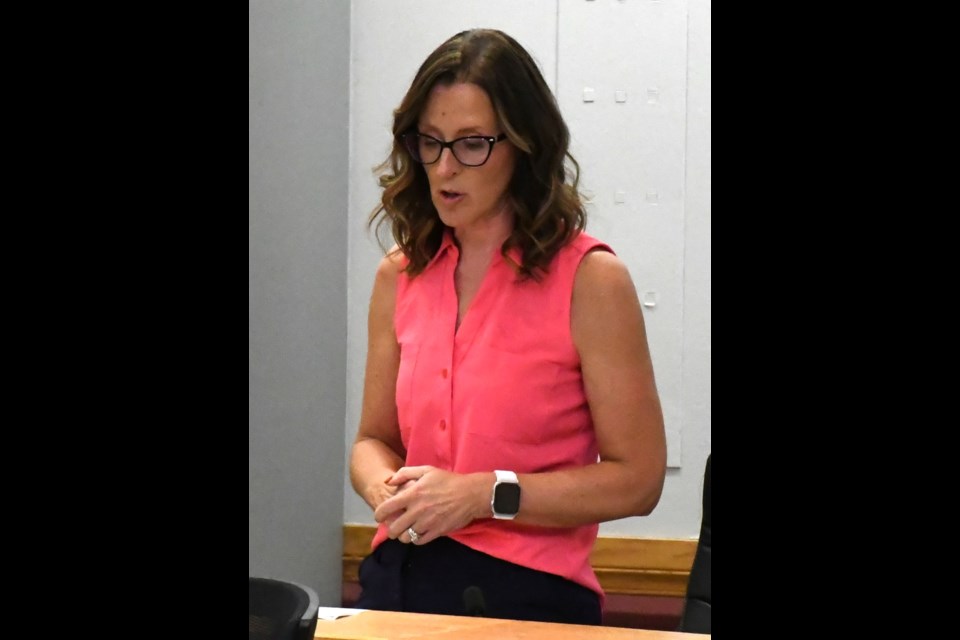Coun. Dawn Luhning is concerned that the federal government is “toying” with the gas tax fund and could eliminate it, which she believes would hinder council’s ability to upgrade infrastructure.
“Obviously, the taxpayers need to understand the amount of money the city has received (through) the gas tax fund (over the years) … ,” Luhning said during the April 8 regular council meeting.
The councillor indicated that Ottawa has provided Moose Jaw with funding to support 10 projects, including $9 million for upgrades to the wastewater treatment plant that totalled $18.5 million, $5 million for enhancements to the Buffalo Pound Water Treatment Plant that totalled $10 million, and $3 million for upgrades to the east feeder main line that totalled $15 million.
Luhning then introduced a motion encouraging the federal government to provide sufficient infrastructure funding to help keep pace with population growth.
She explained that the Saskatchewan Urban Municipalities Association (SUMA) brought this motion to its board members — of whom she is one — about five weeks ago, with the board discussing its implications and that municipalities should forward it to Ottawa.
“We need to protect this fund from being eliminated,” she added.
The motion
Canada has experienced record population growth recently, including welcoming 1.25 million immigrants last year alone, Luhning said. Moreover, the Canada Mortgage and Housing Corporation says the country must build 3.5 million additional homes by 2030 to house these people. This means municipalities must either build or expand infrastructure to accommodate this growth.
Furthermore, the Federation of Canadian Municipalities has estimated that the cost of developing new housing infrastructure is $107,000 per unit, while Statistics Canada estimates it will cost municipalities $170 billion just to upgrade existing infrastructure, Luhning continued.
While non-residential construction costs have risen by 29 per cent since late 2020, municipalities are facing soaring costs for infrastructure projects — along with inflation — without a corresponding growth in revenue.
Municipalities are also facing a gap in federal funding because the 10-year Investing in Canada Infrastructure Program has concluded, while Ottawa is renegotiating the Canada Community Building Fund (CCBF) with provinces, and the permanent public transit fund comes online in 2026, Luhning said.
The CCBF — formerly the federal gas tax — is particularly important because it provides over $2.4 billion in annual capital funding to municipalities through a predictable allocation mechanism, she continued.
Moreover, communities use the fund to build and renew critical core infrastructure, including water and wastewater, roads, transit and cultural and recreational venues.
Based on these statistics, Luhning wanted council to push the federal government to work with CCBF signatories and municipalities to maintain the fund and ensure there is a source of direct, predictable, long-term funding for infrastructure priorities.
Furthermore, she wanted Ottawa to commit in its 2024-25 budget to a new generation of infrastructure programs, including a new initiative to address water and wastewater plants and increases to the disaster mitigation and adaptation plan.
She also wanted Ottawa to negotiate with provinces, territories and communities on a municipal growth framework to modernize how communities are funded to enable Canada’s long-term economic growth.
Hear our voices
“… we need the federal government to understand that we cannot afford as municipalities to be downloaded upon for costs of these big infrastructure projects,” Luhning said. “We need our voices heard that we need to hang onto this gas tax fund.”
When asked what action city administration would take to address this motion, city manager Maryse Carmichael said it’s already on administration’s radar. SUMA contacted her office recently and wanted an opinion on this motion, which it provided to its members throughout the province.
“Right now, I don’t know if there’s any other tangible actions administration can take,” she added.
Council then unanimously approved the motion.
The next regular council meeting is Monday, April 22.




